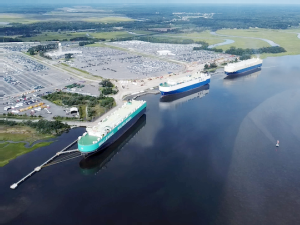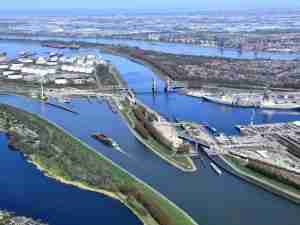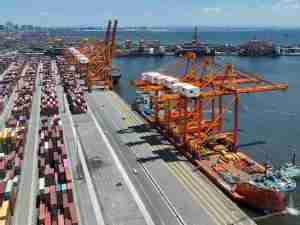Kizad is a 417 sq km industrial zone strategically located between Abu Dhabi and Dubai, and is now ready to receive applications from potential tenants. With one of the world’s most advanced deepwater seaports and world-class infrastructure, Kizad will benefit from excellent multimodal connectivity via sea, air, road and rail networks to ensure easy accessibility to and from the Industrial Zone. Phase 1, which was launched yesterday, is 51 sq km with an investment of AED 26.5 billion or $7.2 billion.
Commenting on the launch, Khaled Salmeen, Executive Vice President of Industrial Zones at ADPC, said “We are honoured to be launching our international marketing campaign in Mumbai. India and the UAE have a long history of trade and business relations that facilitates our presence. We believe that Kizad offers Indian businesses a great opportunity to expand their presence with facilities and advantages that justify doing business in Abu Dhabi.”
Non-oil trade between India and the United Arab Emirates (UAE) rose 24% to $29.02 billion in the last fiscal, making the UAE India’s third-largest trading partner after the US and China, according to the latest figures released by the Indian Embassy in Abu Dhabi. India’s non-oil exports to the UAE in the last fiscal year went up to $15.47 billion from $13.61 billion a year earlier and its non-oil imports from the UAE during 2009-2010 were valued at $13.56 billion, higher than $9.79 billion in 2007-08 financial year.
Kizad is a cornerstone of the Abu Dhabi Economic Vision 2030 which also highlights the drive to diversification of the economy in pursuit of sustainable growth less dependent on the oil and gas industries. Its purpose is, in part, to create the range and number of opportunities necessary to recruit, retain and develop local and skilled expatriate talent to build a sustainable knowledge economy whilst reducing reliance on unskilled labour.
Salmeen, continued saying: “What we look to offer is the ability for businesses to come to Abu Dhabi and thrive through efficient access to markets, lower operating costs and a greater ease of doing business. These three critical success factors for global industry are key ingredients and will all feature over the long term.”
By 2030, Kizad will be expected to contribute around 15% of Abu Dhabi’s non-oil GDP. It will be a powerful magnet for foreign direct investment, with global business locating large-scale primary and downstream manufacturing facilities in the Industrial Zone. It is anticipated that between 60% and 80% of the goods manufactured within Kizad will be exported, adding further value to the nation’s economy.
Kizad’s strategy is to attract world-class companies, and to establish international industry best practices throughout the Zone. Global and local companies alike will find in Kizad the business efficiencies, market access, low cost operating environment and support essential for long term competitive advantage. Kizad will set new standards for industrial zone infrastructure, environment and operation, reinforcing Abu Dhabi’s global competitive advantage.










